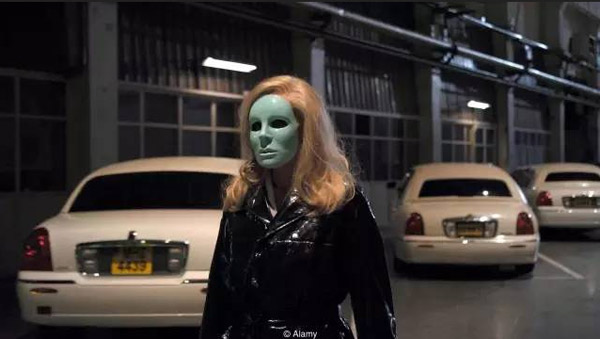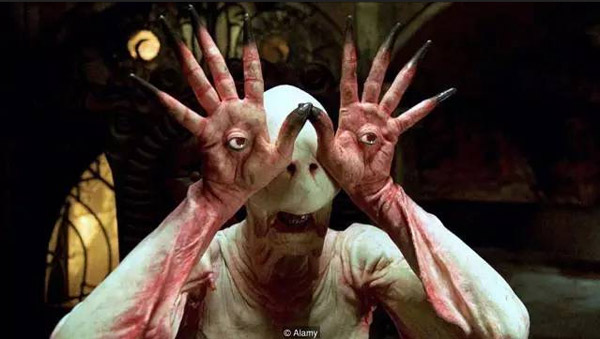當(dāng)前位置: Language Tips> 雙語新聞
分享到
16
神圣車行
Holy Motors

導(dǎo)演:萊奧·卡拉克斯(Leos Carax)
Holy Motors is not a movie. It is an act of grief designed as an expression of love, and while enfant terrible Leos Carax has been an essential director for any film fan since his debut, he has never before laid himself bare in the way he does with this movie, in which a man is driven around in a limousine, assumes various disguises and personas, and connects and disconnects with people who flit into his life. Surreal, silly, sexy and sad, Holy Motors is a guided tour through everything about cinema that matters to Carax.
《神圣車行》不是一部電影。它是一次悲傷的行動,卻被設(shè)計(jì)為愛的表達(dá),在影迷心中,電影頑童萊奧·卡拉克斯從處女作開始就是位了不起的導(dǎo)演。他從來不曾像在本片中這樣袒露自己,這部電影里,一個男子開著豪華車四處游蕩,以各種造型扮演不同的角色,與路過他生命的人們發(fā)生聯(lián)系又離開。離奇、愚蠢、性感、悲傷,神圣車行是一次有意安排的旅程,途經(jīng)與電影有關(guān)的、在卡拉克斯心中有分量的一切。
– Drew McWeeny, Hitfix, US
17
潘神的迷宮
Pan's Labyrinth

導(dǎo)演: 吉爾莫·德爾·托羅(Guillermo del Toro)
Del Toro gives us a look into the horrors of war– in this case the Spanish Civil War. A twin of Del Toro's beautiful Civil War picture, The Devil's Backbone, Pan's Labyrinth gives us tragedy through the filter of fantasy, going deep into a well of suffering and magic. Its power lies in its purity: nothing we can imagine is as terrible as what we can do to each other.
德爾托羅讓我們一窺戰(zhàn)爭的恐怖——在這里特指西班牙內(nèi)戰(zhàn)。德爾托羅關(guān)于內(nèi)戰(zhàn)的瑰麗景象中,《鬼童院》和《潘神的迷宮》就像是一對雙胞胎,后者透過夢幻的濾鏡給我們講了一個悲劇,潛入至一口充斥痛苦與魔法的深井。這部電影的力量來自其純粹性:我們想象不出任何比人類互相傷害更可怕的事。
– Ana Maria Bahiana, Freelance, Brazil
18
白絲帶
The White Ribbon

導(dǎo)演:邁克爾·哈內(nèi)克(Michael Haneke)
"A group of children act together as silent perpetrators of crimes" is an already disturbing premise. By setting the story in a north German village in the months prior to World War One, Haneke not only challenged the myth of childhood innocence but also delivered a fictional prequel to the upcoming events in Germany. With any Haneke film, guilt and malice are in the air and no one in particular is to be blamed.
“一群孩子成為沉默的犯罪者”,這一設(shè)定已足夠令人不安,然而哈內(nèi)克還把背景設(shè)在一次世界大戰(zhàn)數(shù)月前的德國村莊,不但挑戰(zhàn)了童年是天真的這一神話,而且這個虛構(gòu)的故事仿佛是戰(zhàn)爭的前傳。哈內(nèi)克的電影總是挖掘人性的罪惡,而其中并沒有誰就應(yīng)該受到譴責(zé)。
– Fernanda Solórzano, Letras Libres Magazine, Mexico
上一篇 : 歷年G20峰會主要成果
下一篇 : 喜劇明星吉恩?懷爾德逝世
分享到
關(guān)注和訂閱


關(guān)于我們 | 聯(lián)系方式 | 招聘信息
電話:8610-84883645
傳真:8610-84883500
Email: languagetips@chinadaily.com.cn